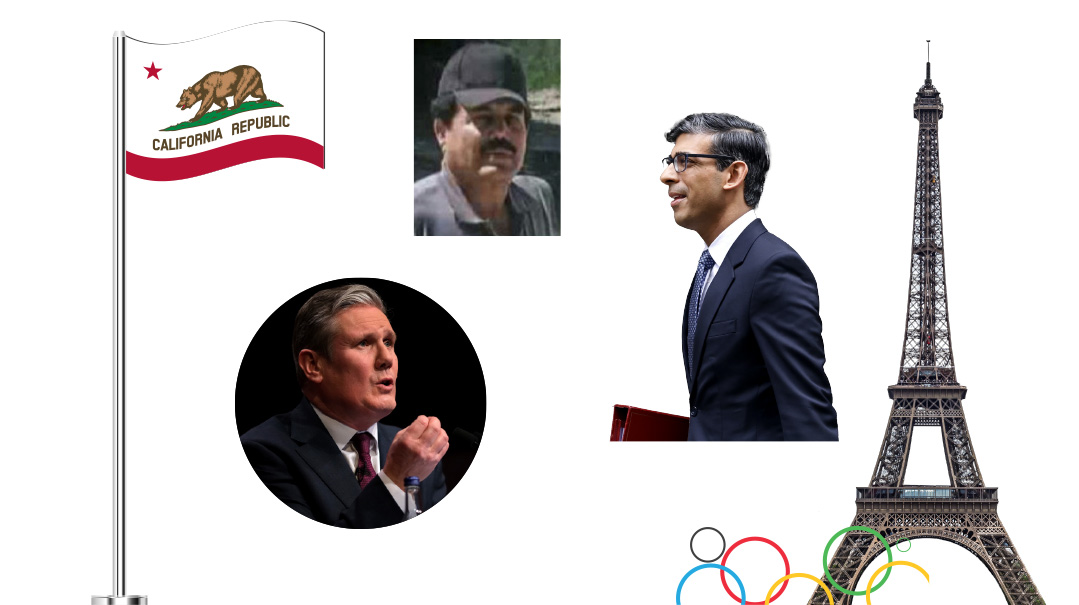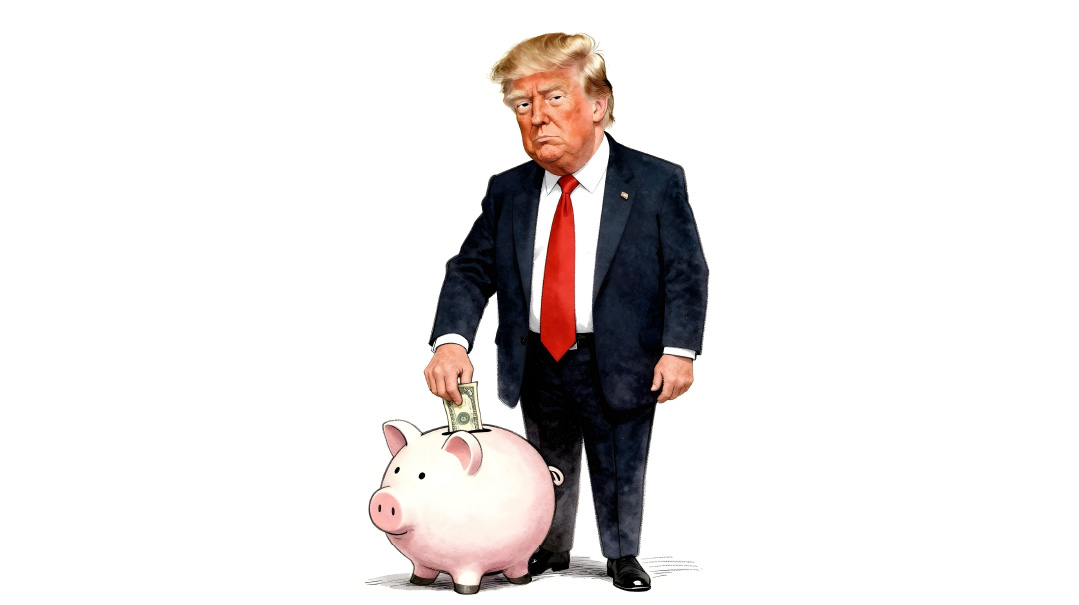Pelosi Makes a Risky Bet
| July 30, 2024Will the voters of San Francisco heed her call, or have they had enough of the socialists?

Pelosi Makes a Risky Bet
San Francisco has been pushing back against the progressivism California is famous for, voting in March to crack down on drug use and increase police surveillance. This November’s elections will offer a bellwether of the city’s future trajectory. San Francisco’s city council, known as the Board of Supervisors, will have six of its 11 members on the ballot. Previous members have gone on to higher office, including Senator Dianne Feinstein, Governor Gavin Newsom, and State Senator Scott Wiener. Dean Preston, the incumbent in District 5, is fighting for reelection, and has won the endorsement of former House Speaker Nancy Pelosi — even though he’s a member of the Democratic Socialists of America.
Preston’s main rival is Bilal Mahmood, a moderate tech entrepreneur and former Obama staffer who is backed by tech investors and advocacy groups who want a tougher approach on crime. Preston’s position on crime is weak; he’s opposed a ban on security guards using firearms to prevent theft.
It’s a risky bet for Pelosi, generally perceived as moderate; local races are increasingly being won by centrist candidates responding to voter concerns over homeless encampments, a drugs epidemic, and unpunished theft. Will the voters of San Francisco heed her call, or have they had enough of the socialists?
“Democratic People’s Republic of Korea.”
Olympic announcers introducing athletes on South Korea's team in Paris, mistakenly referring to the country by North Korea’s official name. Oh, dear. The democratic tech powerhouse of South Korea is rather different from the Communist hermit kingdom to its north. Sounds like they were afflicted with Bidenitis.
Memories of Munich
It was Germany’s chance to cement its rehabilitated postwar image. Just 36 years after Hitler’s 1936 Olympics in Berlin, designed to showcase Aryan superiority, the 1972 Munich Olympics, with the participation of an Israeli team of athletes, would show the world that anti-Semitism had no place in Germany. Except that somehow, a squad of Black September terrorists managed to infiltrate the Olympic village, enter the Israelis’ quarters, and take 11 hostages. After a bungled rescue attempt, they were all killed.
Now, France is hosting the summer Olympics. The country, rocked by political instability and polarizing radicalism, hoped the event would be a unifier, and its weakened leadership prayed it would provide a political breather. But the tensions that are tearing France apart are boiling over into the Olympics as well.
As early as March, the opening ceremony’s capacity was slashed by half for fear of Islamist terrorist attacks. A far-left French politician protested any form of Israeli participation. An Iranian-backed hacker group published the personal information of Israeli athletes. Israeli president Yitzchak Herzog was delayed from disembarking upon arrival in France for the event, due to a security threat. Coordinated arson has crippled the French railway system, though the perpetrators are still unknown. At a match featuring Israel’s soccer team, the playing of Hatikvah was booed.
Security is tight, with Israel’s 88 athletes accompanied by bodyguards and Shin Bet agents. France’s security apparatus is on high alert. The scars of the Munich massacre, and the powder keg of anti-Israel hostilities in France and across the world, make the 2024 Paris Olympics unlike any the world has seen.
The Night Shift
Leading a party after a historic battering is not an easy job, but no fewer than seven of the remaining 121 Conservative MPs are running to replace Rishi Sunak, who’s staying on as party leader and heading the opposition until November. Former leader William Hague described his leadership of the Tory Party after Labour’s 1997 landslide as “the night shift.” But with Labour’s vote share historically low for a victorious party, the Tory candidates hope they can avoid the 13 years in opposition they faced the last time they were ousted. Here’s a quick rundown of each of them.
Kemi Badenoch, who polls best among the membership, is aggressive, well-spoken, very culturally conservative, and the first black woman with a serious chance at the job. Robert Jenrick, once an ally of Sunak, is an immigration hawk, but otherwise socially liberal. Tom Tugendhat and Mel Stride are both from the party’s left flank, and the chat in Westminster is that Priti Patel, Brexiteer and right-winger, has some unexpected centrist support, though no prominent moderates have yet publicly backed her. James Cleverly is a popular and well-respected figure who’s served everyone from Cameron to Sunak, so is seen as a unifier. Suella Braverman, the most right-wing of the candidates, who’s said some rather controversial things as home secretary, appears to be alienating fellow MPs, and so far has no public backers, so is unlikely to get anywhere near the membership stage.
British Betrayal
Spooked by the encroachment of the far left onto its territory in recent elections, Britain’s governing Labour Party is moving swiftly to burnish its pro-Palestinian credentials. First, it announced it was restarting funding to UNRWA, which was suspended after Israel claimed its participation in the October 7 attacks. Now, they’ve withdrawn their Conservative predecessors’ objection to the ICC arrest warrant for Netanyahu. The Tories had argued that under the Oslo Accords, the Palestinian Authority doesn’t have jurisdiction over Israeli nationals, and therefore cannot transfer that jurisdiction to the ICC to prosecute Israelis.
A spokesman for Prime Minister Keir Starmer, a former lawyer himself, said everyone should be subject to the rule of law, and courts should be independent. The mealy-mouthed defense of a U-turn by an historical ally of Israel fools nobody. It’s a blatant kowtow to the Gaza lobby, whose candidates and activists harassed their Labour (mainly female) opponents in the general election earlier this month, and came within a few hundred votes of unseating several Labour ministers. The message that the government will bow to violent protest is not an encouraging one.
Kingpin in Custody
Mexican drug lord Ismael “El Mayo” Zambada, who was arrested by the US at the border last week. He was lured into a private plane by Joaquin Guzman Lopez, son of notorious drug dealer El Chapo, who told him they were going to look at some real estate in northern Mexico. Lopez had contacted US law enforcement to tell them he was turning himself in, and bringing a much-wanted honcho along with him. It’s a rare boon for the war on illegal drugs, which has been a losing battle against a staggeringly profitable narcotics trade, and threatens to cause a violent ruction between rival Mexican drug gangs.
(Originally featured in Mishpacha, Issue 1022)
Oops! We could not locate your form.







